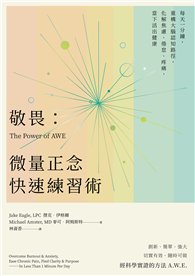This publication commemorates the five-hundredth anniversary of the Protestant Reformation, out of which a progeny, the Puritans, indelibly captured the blessed doctrines of the "unsearchable riches of Christ" in various confessions of faith - those mighty men "who assembled at Westminster, Savoy, and in London, [who] were of as godly, judicious divines, as the world ever knew! ... And as it was the method of those Particular Baptists of London and the vicinity, put forth about the year 1677, to express their sentiments in a way that not only gave a full account of things believed among them, but also fixed their method on the one adopted by the Westminster Assembly and ’those of the Congregational way;’" so too that same design has been maintained in the present revision."Therefore, care has been diligently taken to compare all three 17th-century confessions to preserve the doctrines, words and terms, the sense, and agreement, insofar as they are agreeable to the word of God. It is hoped that the reader discovers straightaway the conformity to the thought flow of the originals; and the sequence, words, and phrases that were common in the 17th-century were assiduously chosen, except where it was impossible to do so." A Larger Catechism has been added, "hitherto unknown to the Baptists, to expand and fully articulate the statements in the Confession and to increase knowledge among the people of God. A Shorter Catechism has been added which is meant to be useful in the training of children, new converts, and as many as are of weaker capacity. Both ... Catechisms were revised in the same manner as the Confession in order to preserve uniformity and agreement, and that both would be agreeable to the word of God, and in nothing contrary to the received doctrine. All three treatises taken together are meant to form the London Standards, and it is here presented for consideration. Let the ’Epistle to the Reader’ affixed to the Westminster Confession of Faith speak thus: ’It is ordinary in these days for men to speak evil of things they know not; but if any are possessed with mean thoughts of these treatises, we shall only give the same counsel to them that Philip gives Nathanael, Come and see, John i. 46.’"The Puritan is primarily concerned about a pure church, a truly Reformed Church. Men may like aspects of the Puritan teaching - their great emphasis on the doctrine of grace, and their emphasis on pastoral theology; but however much a man may admire those aspects of Puritanism, if his first concern is not for a pure church, a gathering of saints, he surely has no right to call himself a Puritan - D.M. Lloyd-Jones.
| FindBook |
|
有 1 項符合
Independent Huguenot Press的圖書 |
 |
$ 877 | The London Confession of Faith Revised
作者:Anonymous 出版社:Independent Huguenot Press 出版日期:2016-12-06 語言:英文 規格:平裝 / 418頁 / 21.59 x 13.97 x 2.36 cm / 普通級/ 初版  看圖書介紹 看圖書介紹
|
|
|
圖書介紹 - 資料來源:博客來 評分:
圖書名稱:The London Confession of Faith Revised
|











